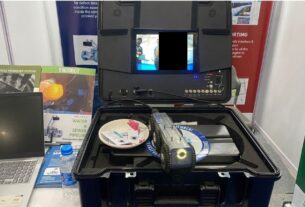Jail-made dishes that once had a ready market in Kerala can’t find any takers now.
Kerala: The government’s profitable venture of ‘freedom food’ from prison is struggling to survive the pandemic. Previously, food was delivered to different outlets by vans from the prison; now, they only sell their food from the Freedom Food Factory counter outside the Kannur Central Jail.
As people are now afraid to buy food from outside, the number of customers has decreased.
In Kannur Central Jail, 144 inmates and 10 jail workers tested positive for the virus on April 26, 2021, and the factory was closed down at that time.
Vijesh.K, who works at Kannur’s Freedom Food Factory said, “Before Covid 15,000 chapatis were produced in a day , but now the count has gone down drastically. Inmates are given this type of work in order to help them in the future. We’re actually assisting them in acquiring an ability that will benefit them in the future and help them earn a living after they are released from jail.’’
”When a few of the inmates tested positive for Covid, we had to shut down the factory. We kept them separately and resumed our business after some days when the situation got better. However, we haven’t done well since then. We used to earn Rs. one lakh in a day, but now we do not even make half of that,” he added.
Previously, over one lakh chapatis and thousands of packets of vegetable curry and chicken were sold on a daily basis from all three central jails in Kerala. Food was delivered to peoples’ homes, offices, and government hospitals by jail officials. Low-income housing settlements, elderly households, and orphanages were all served by mobile outlets. But, all of this has come to a standstill now.
Shyju , Warden of Kannur Central Jail, said the inmates cook chicken, eggs, vegetables, and mutton biryani. They sell them for a very low price. They charge Rs. 65 for biryani and Rs. 25 for chicken curry. Inmates also prepare chips and other delicacies in the Freedom Food Factory and market them outside the prison.
The sale of food from the three central prisons earns the government a profit of Rs. three crore per year. Kannur Central Jail generates more revenue than other jails. Kannur Central Prison started this venture in October 2012. Within five years, the factory had earned over Rs. 8.5 crore The Kerala Prison Department used to generate over Rs. 15 crore per year from food sales alone.
‘’When inmates first begin working in the prison, they are paid Rs. 63, but inmates assigned to work at the Freedom Food Factory are paid more due to the increased workload. Before Covid, inmates were given Rs. 148 for making food products. They now get Rs. 125. Inmates who do other jobs in the jail are given Rs. 118,” Mr Shyju said.
The Kannur jail’s food processing unit currently employs 62 inmates in shifts. People are recruited from outside at the outlets.
In 2019, the Freedom Food Factory in Viyyur, Thrissur, partnered with Swiggy, an online food delivery platform, to cater to people outside of Viyyur, so they are now profiting from the food sold online. Similarly, the Kakkanad District Jail has partnered with Uber Eats to supply inmate-prepared food to customers. The food factory in Kannur has not partnered with any online food delivering app.
Jitesh.P, resident of Thalaserry said,’ “We get cheap, affordable and good quality food from Freedom Food Factory in Kannur. It is sad that they no longer deliver it to this place. Now we have to go to their counter and purchase food.’’
When there was concern about the increasing prices of food products in hotels, the Kerala jail administration came up with the concept of cooking in jails for the general public. In 2011, Viyyur Central Prison began experimenting with the manufacture of chapatis. It was a huge success, with 35,000 chapatis sold every day.
Dr. Jayasree A.K, a social activist said, ’’Food demand should actually rise during this period. It is important to have a community kitchen available during this period to assist residents. The jail’s welfare officers need to find a market for their product right now. They should ask help from the government to take an initiative to partner with delivery platforms and cater to the right audience. Since public gatherings are prohibited, the mode of service can be altered.’’




